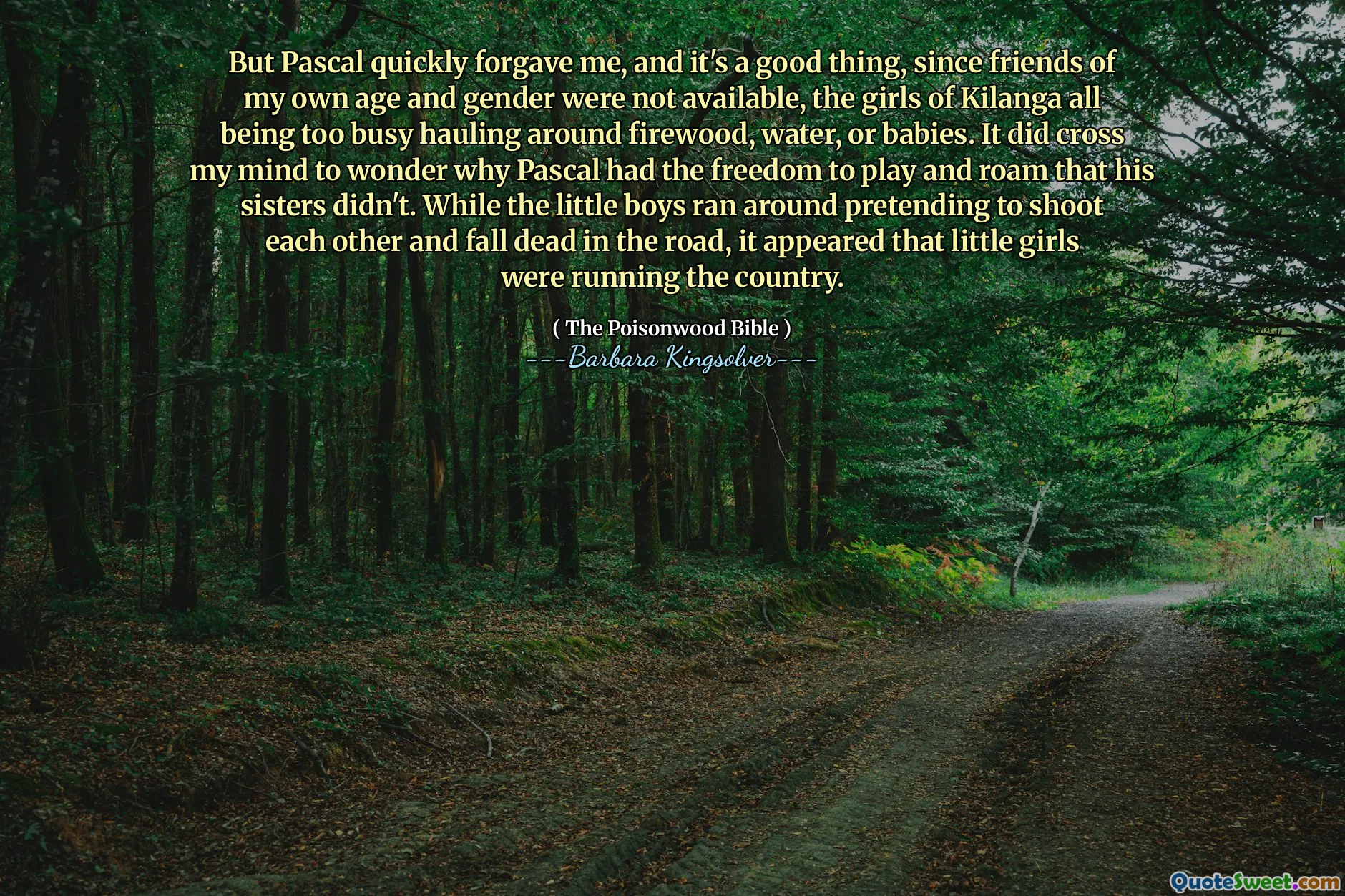
But Pascal quickly forgave me, and it's a good thing, since friends of my own age and gender were not available, the girls of Kilanga all being too busy hauling around firewood, water, or babies. It did cross my mind to wonder why Pascal had the freedom to play and roam that his sisters didn't. While the little boys ran around pretending to shoot each other and fall dead in the road, it appeared that little girls were running the country.
In "The Poisonwood Bible," the narrator reflects on the disparity in freedom between boys and girls in Kilanga. Pascal, a young boy, enjoys the liberty to play and engage in boyish games, while the girls are burdened with chores and responsibilities, such as fetching firewood and caring for babies. This observation highlights the societal expectations placed on young girls, which starkly contrast with the carefree behavior exhibited by the boys.
The narrator's thoughts reveal a keen awareness of gender roles within the community, as she questions why Pascal is allowed this freedom while his sisters remain encumbered. The scene illustrates a broader commentary on the division of labor and responsibilities based on gender, with the little girls seemingly managing the household and community in contrast to the boys who indulge in play. This tension prompts a critical reflection on the cultural constructs that dictate the lives of children in Kilanga.







